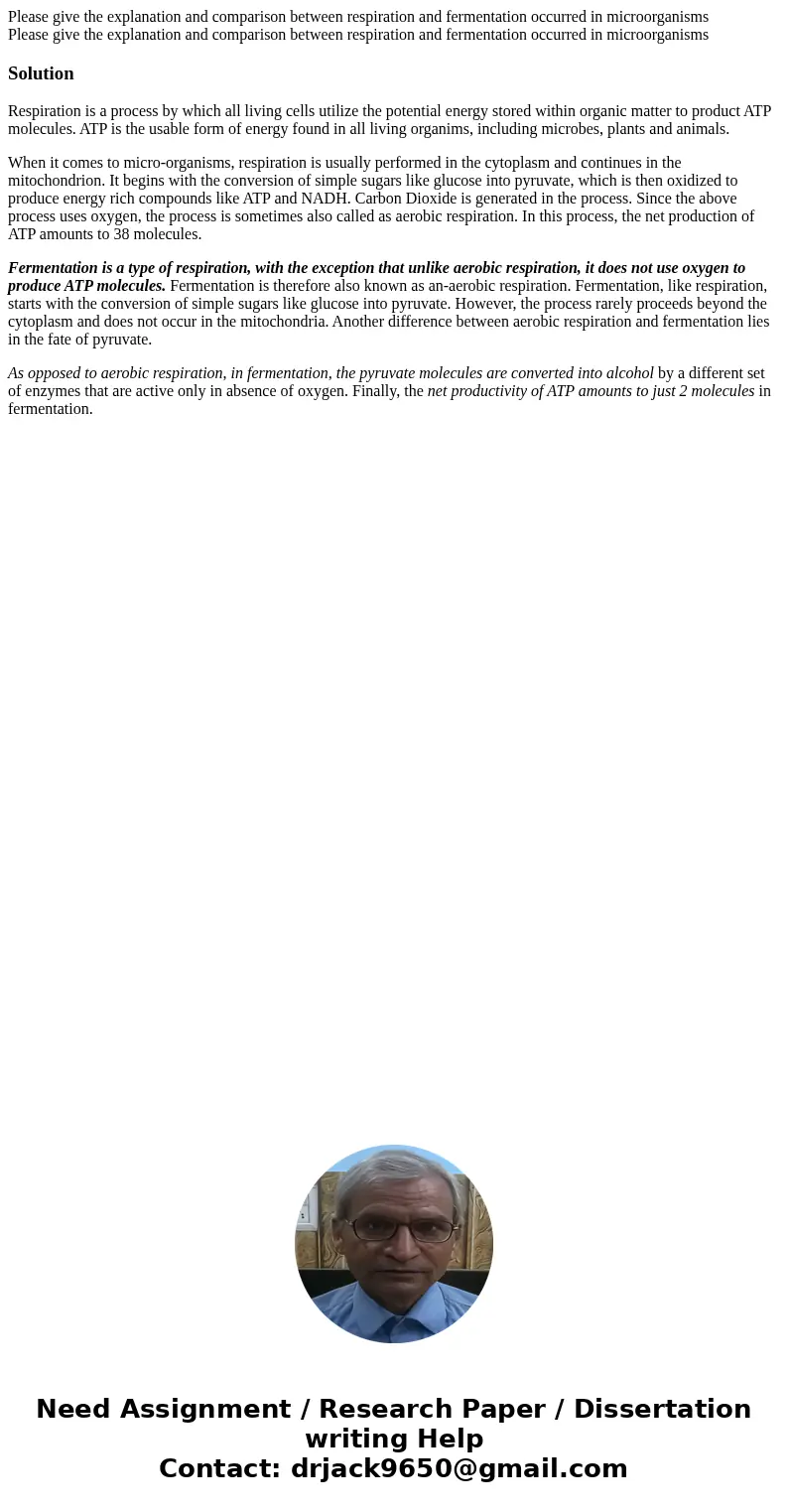Please give the explanation and comparison between respirati
Solution
Respiration is a process by which all living cells utilize the potential energy stored within organic matter to product ATP molecules. ATP is the usable form of energy found in all living organims, including microbes, plants and animals.
When it comes to micro-organisms, respiration is usually performed in the cytoplasm and continues in the mitochondrion. It begins with the conversion of simple sugars like glucose into pyruvate, which is then oxidized to produce energy rich compounds like ATP and NADH. Carbon Dioxide is generated in the process. Since the above process uses oxygen, the process is sometimes also called as aerobic respiration. In this process, the net production of ATP amounts to 38 molecules.
Fermentation is a type of respiration, with the exception that unlike aerobic respiration, it does not use oxygen to produce ATP molecules. Fermentation is therefore also known as an-aerobic respiration. Fermentation, like respiration, starts with the conversion of simple sugars like glucose into pyruvate. However, the process rarely proceeds beyond the cytoplasm and does not occur in the mitochondria. Another difference between aerobic respiration and fermentation lies in the fate of pyruvate.
As opposed to aerobic respiration, in fermentation, the pyruvate molecules are converted into alcohol by a different set of enzymes that are active only in absence of oxygen. Finally, the net productivity of ATP amounts to just 2 molecules in fermentation.

 Homework Sourse
Homework Sourse